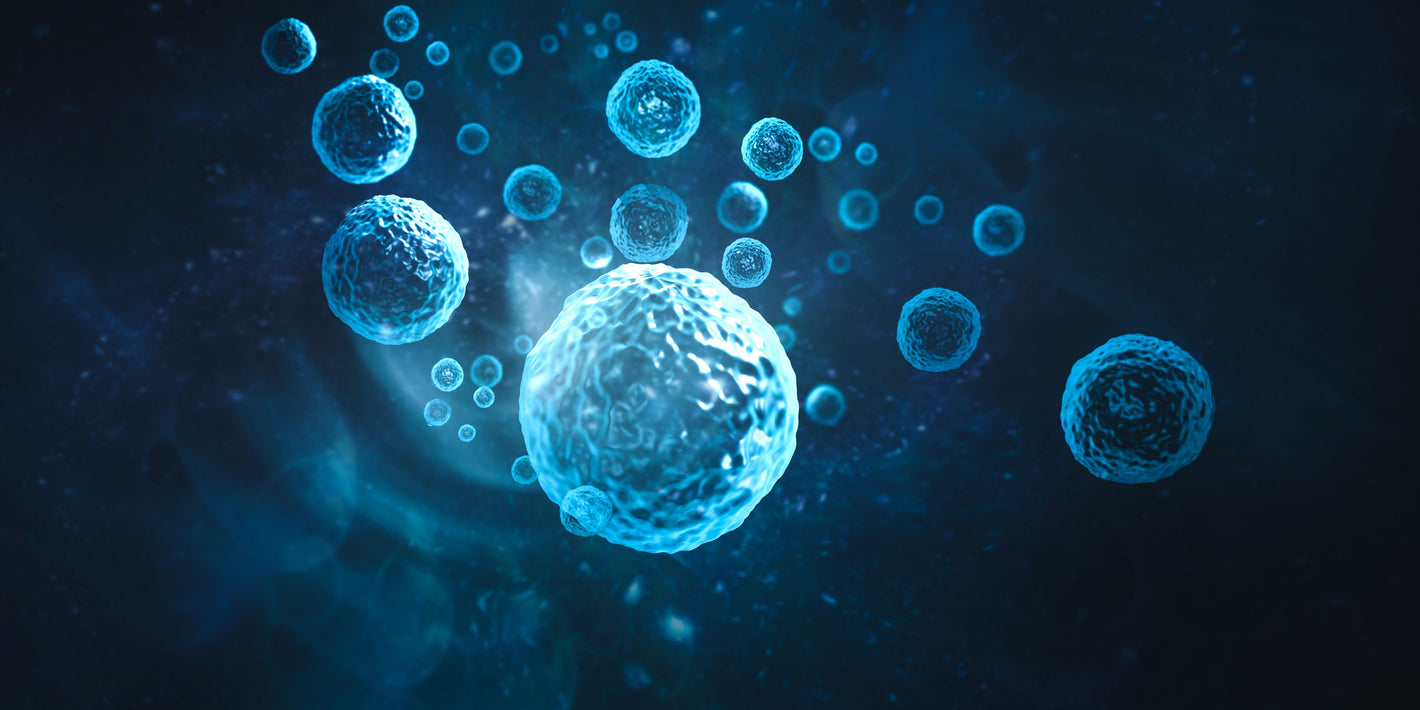
Protecting Your Cells: How Astaxanthin Supports Overall Well-Being
Harnessing the Power of Astaxanthin: An Introduction to Its Cell-Protective Benefits
Astaxanthin, a naturally occurring carotenoid found in certain algae and seafood, has gained recognition for its potential to support cellular health and overall well-being. It's often referred to as "nature's most potent antioxidant" due to its unique chemical structure that enables it to neutralize harmful free radicals and combat oxidative stress.
As we delve into the world of Astaxanthin, it's essential to understand its role as an antioxidant. Oxidative stress occurs when there's an imbalance between free radical production and the body's ability to counteract its harmful effects. Over time, this imbalance can lead to cellular damage over time, contributing to various health issues and aging. Astaxanthin, with its potent antioxidant capacity, helps restore this balance, protecting cells from the destructive influence of free radicals.
However, harnessing the power of Astaxanthin goes beyond merely consuming it. Factors such as bioavailability, dosage, and synergy with other nutrients significantly maximize its cell-protective benefits. It's important to note that Astaxanthin is a fat-soluble compound, meaning it's best absorbed when taken with dietary fat.
Despite the promising benefits of Astaxanthin, one challenge is the limited natural sources, with most of it derived from the microalgae Haematococcus Pluvialis. Its production's sustainability and potential impact on marine ecosystems require careful consideration and balanced solutions.
Exploring How Astaxanthin Safeguards Your Cells
Astaxanthin's role in promoting longevity lies in its ability to guard your cells against oxidative damage. Studies suggest this antioxidant may slow cellular aging by reducing inflammation, improving mitochondrial function, and protecting cellular structures from oxidative damage.
One of the most intriguing aspects of Astaxanthin is its ability to cross the blood-brain and blood-retinal barriers, protecting the brain and eyes from oxidative stress. This characteristic sets it apart from many other antioxidants, making it particularly valuable in supporting overall cellular health.
However, while Astaxanthin can substantially support your cells, it's not a standalone solution to longevity. A balanced diet, regular physical activity, and a healthy lifestyle are crucial components of a longevity strategy. Astaxanthin should be viewed as a complementary addition to these cornerstones of health.
Another challenge lies in the lack of definitive human clinical trials determining the optimal dosage of Astaxanthin for longevity benefits. Current recommendations are based on preliminary research and extrapolation from animal studies.
Nature's Shield for Cellular Health and Vitality
Astaxanthin has gained notoriety as a 'cellular shield' due to its unique ability to span the entire cell membrane, offering protection both inside and out. This is in contrast to other antioxidants, like Vitamin C, which protects only the water-soluble part of the cell, and Vitamin E, which only protects the fat-soluble part.
This 'whole cell' protection contributes to the vitality of cells, promoting optimal function and resilience in the face of stressors. It benefits immune cells, enhancing their responsive capabilities and aiding the body's natural defense mechanisms.
Yet, despite Astaxanthin's potential for cellular health, there's always the risk of excessive intake, potentially leading to a condition known as carotenemia, where the skin takes on an orange or red hue. While not harmful, it indicates that the body's carotenoid storage is full.
Additionally, as a powerful antioxidant, Astaxanthin may interact with certain medications or health conditions, highlighting the need for personalized advice and guidance from healthcare professionals before incorporating Astaxanthin into your routine.
How Astaxanthin Protects Your Cells from Oxidative Stress
Oxidative stress is a natural byproduct of cellular metabolism and environmental factors such as pollution, UV radiation, and unhealthy lifestyle choices. When left uncontrolled, oxidative stress can lead to cellular damage and contribute to the development of chronic diseases.
Astaxanthin's exceptional antioxidant properties make it a powerful ally in the fight against oxidative stress. Unlike many other antioxidants that can only scavenge one or two free radicals, Astaxanthin can neutralize multiple free radicals across various cellular compartments. This broad-spectrum protection makes it highly effective in safeguarding cells from oxidative damage.
Moreover, Astaxanthin has shown remarkable abilities to enhance the activity of other antioxidants, such as vitamins C and E, amplifying their protective effects. This synergy underscores the importance of a balanced approach to antioxidant intake, where different antioxidants work together to provide a comprehensive cellular defense.
It's worth noting that while Astaxanthin offers substantial protection against oxidative stress, it should not be viewed as a magic bullet. A holistic approach that combines a nutrient-rich diet, regular exercise, stress management, and other healthy lifestyle habits is vital for overall well-being and optimal cellular health.
The Multifaceted Role of Astaxanthin in Cell Protection
The benefits of Astaxanthin extend beyond its role as a potent antioxidant. Its unique properties enable it to support various systems and organs throughout the body, promoting cell protection from head to toe.
One notable area where Astaxanthin shines is skin health. As the largest organ and the first line of defense against external stressors, the skin is particularly vulnerable to oxidative damage. Astaxanthin's ability to neutralize free radicals and reduce inflammation helps maintain the skin's integrity, promoting a youthful appearance and protecting against UV-induced damage.
Furthermore, Astaxanthin's ability to cross the blood-brain barrier allows it to exert its protective effects on brain cells. It has been shown to reduce inflammation, enhance cognitive function, and support neuroplasticity, potentially benefiting overall brain health and reducing the risk of neurodegenerative diseases.
Astaxanthin's versatility extends to other systems as well. It supports cardiovascular health by reducing oxidative stress, promoting healthy cholesterol levels, and improving blood flow. In the eyes, Astaxanthin helps protect against age-related macular degeneration and supports optimal vision.
While the evidence supporting these benefits is promising, it's important to note that individual results may vary. Factors such as dosage, duration of use, and individual differences can influence the outcomes. Consulting with a healthcare professional can help determine the most appropriate approach for incorporating Astaxanthin into your routine.
How Astaxanthin Strengthens the Body's Natural Cellular Defense Systems
Beyond its direct antioxidant effects, Astaxanthin has been found to enhance the body's natural defense systems, strengthening its ability to maintain cellular health and counteract external stressors.
Astaxanthin has been shown to modulate the immune response by promoting the activity of immune cells, such as natural killer cells and lymphocytes. This immune-enhancing property helps the body combat infections, fight off pathogens, and maintain a healthy immune system.
Furthermore, Astaxanthin supports the body's detoxification processes by promoting the activity of enzymes involved in the breakdown and elimination of toxins. By removing harmful substances, Astaxanthin helps reduce the burden on cells and organs, supporting overall cellular health.
In addition, Astaxanthin has demonstrated anti-inflammatory properties, helping to mitigate chronic low-grade inflammation that can contribute to cellular damage and the development of various diseases. Astaxanthin helps create an environment that supports optimal cell function and overall well-being by reducing inflammation.
However, it's important to note that while Astaxanthin can enhance the body's natural defense systems, it should not be relied upon as a substitute for a healthy lifestyle. A balanced diet, regular exercise, sufficient sleep, and stress management are fundamental pillars of a robust immune system and overall cellular health. Astaxanthin can be a valuable addition to these efforts, but it works best in synergy with a holistic approach to well-being.
Unveiling Its Mechanisms for Cell Protection
The remarkable cell-protective benefits of Astaxanthin are not merely anecdotal; a growing body of scientific research supports them. Numerous studies have explored the mechanisms through which Astaxanthin affects cellular health.
One key mechanism is its ability to quench free radicals by donating electrons, effectively neutralizing their damaging effects. Astaxanthin's unique structure allows it to reach deep within cell membranes and other cellular structures, protecting them from oxidative damage and maintaining their integrity.
Astaxanthin also can modulate gene expression and influence signaling pathways that regulate cellular processes. It has been shown to downregulate inflammation and upregulate genes associated with antioxidant defenses, further strengthening its cell-protective properties.
Additionally, Astaxanthin has been found to activate the Nrf2 pathway, a master regulator of antioxidant and detoxification gene expression. Activation of this pathway enhances the body's ability to produce its own antioxidants and detoxify harmful substances, providing a comprehensive defense against cellular damage.
While the science behind Astaxanthin is promising, it's important to recognize that research is ongoing, and there is still much to learn about its mechanisms and potential applications. The continued scientific investigation will contribute to a deeper understanding of Astaxanthin's role in cellular health and its potential therapeutic uses.
How Astaxanthin Guards Your Cells Against UV Damage
When it comes to sun protection, most people consider sunscreen the primary defense against harmful UV radiation. However, emerging research suggests that Astaxanthin may play a valuable role in protecting the skin from the damaging effects of sun exposure.
UV radiation can induce oxidative stress and inflammation in the skin, leading to sunburn, premature aging, and an increased risk of skin cancer. Astaxanthin's powerful antioxidant and anti-inflammatory properties make it an ideal candidate for protecting against UV damage.
Studies have shown that Astaxanthin can reduce UV-induced skin inflammation and oxidative stress, helping to prevent sunburn and minimizing skin damage. It can also enhance the skin's natural defense mechanisms, such as collagen and elastin production, which contribute to skin elasticity and overall health.
While Astaxanthin can provide supplemental protection against UV damage, it should not replace sunscreen or other sun protection measures. A comprehensive approach that combines Astaxanthin with sun-protective clothing, shade, and regular sunscreen use is recommended for optimal skin health.
Astaxanthin's Impact on Cell Aging and Longevity
Aging is a complex process influenced by various factors, including genetics, lifestyle, and cellular health. Astaxanthin's potent antioxidant and anti-inflammatory properties make it a compelling candidate for slowing aging and promoting longevity.
One of the key contributors to aging is the shortening of telomeres, the protective caps at the end of chromosomes that safeguard their integrity. As cells divide, telomeres naturally shorten, leading to cellular aging and dysfunction. Astaxanthin has been found to help preserve telomere length by reducing oxidative stress and inflammation, potentially slowing down the aging process at the cellular level.
Moreover, Astaxanthin has been shown to support mitochondrial function, the energy powerhouses of cells. Mitochondrial dysfunction is a hallmark of aging and is associated with the accumulation of oxidative damage. Astaxanthin's ability to neutralize free radicals and reduce inflammation helps maintain mitochondrial health, promoting cellular energy production and overall vitality.
Astaxanthin's impact on cell aging extends beyond these mechanisms. It has been found to inhibit the activity of certain enzymes involved in collagen breakdown, contributing to maintaining youthful and healthy skin. Additionally, Astaxanthin's ability to enhance cognitive function and protect against neurodegenerative diseases suggests a potential role in maintaining brain health and longevity.
While Astaxanthin shows promise in promoting longevity and combating age-related decline, it's important to recognize that aging is a complex process influenced by multiple factors. A holistic approach encompassing a healthy lifestyle, stress management, and other proactive measures is crucial for overall well-being and longevity. Astaxanthin can be a valuable tool in this comprehensive strategy.
Unlocking the Potential of Astaxanthin for Overall Well-Being
Astaxanthin's cell-protective benefits and potential impact on overall well-being make it a compelling nutrient to consider in your quest for optimal health. However, it's important to approach its use with mindfulness and a balanced perspective.
When incorporating Astaxanthin into your routine, consider the following factors:
Quality and Source: Look for high-quality Astaxanthin supplements from sustainable and reliable sources. Choose products that have been independently tested for purity and potency.
Dosage and Duration: While there is no established standard dosage for Astaxanthin, recommendations typically range from 4 to 12 milligrams per day. Start with a lower dose and gradually increase it if needed. It's important to note that individual responses may vary, and consulting with a healthcare professional is advised.
Bioavailability: Astaxanthin is a fat-soluble compound, so taking it with dietary fat can enhance absorption. Consider consuming Astaxanthin with a meal that contains healthy fats for optimal bioavailability.
Personalized Approach: Each individual's health needs and goals are unique. Consider seeking guidance from a healthcare professional who can evaluate your situation and provide tailored advice on incorporating Astaxanthin into your wellness routine.
Summary
Astaxanthin, a powerful antioxidant in certain algae and seafood, offers numerous benefits for cellular health and overall well-being. It acts as a shield against oxidative stress, protecting cells from damage caused by free radicals. Astaxanthin's unique properties allow it to support various systems in the body, from the skin to the brain, promoting optimal function and resilience. It enhances the body's natural defense systems, boosts the immune response, and aids in detoxification and reducing inflammation. Astaxanthin's mechanisms of action include its ability to neutralize free radicals, modulate gene expression, and activate antioxidant pathways. It also shows promise in protecting against UV damage and slowing aging. However, it's important to consider factors like quality, dosage, bioavailability, and personalized needs when incorporating Astaxanthin into your routine. Remember, a holistic approach to health, including a balanced diet, regular exercise, stress management, and other healthy lifestyle habits, remains crucial for overall well-being. Astaxanthin can be a valuable addition to support your cellular health journey and empower your cells for optimal vitality.









